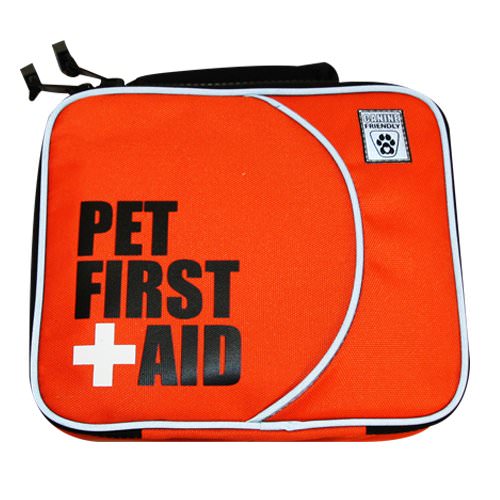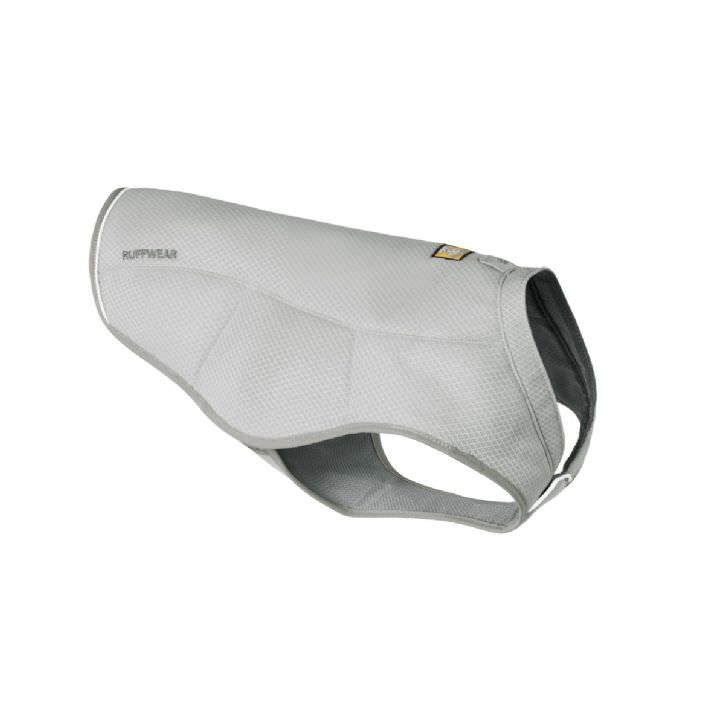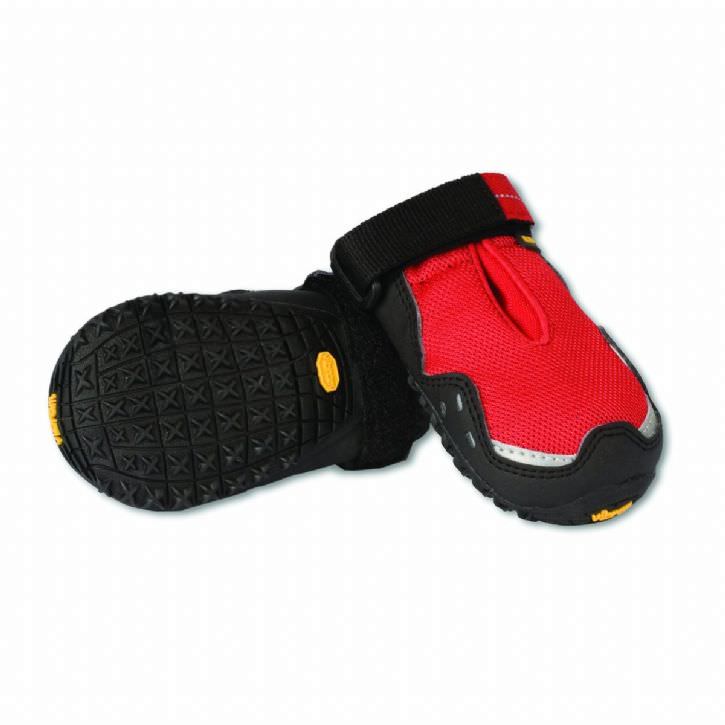|
Hiking is a fun cardiovascular workout, burning 350 to 400 calories an hour while providing beautiful scenery and a chance to escape the city. But did you know it's as good for your four-legged companion as it is for you? Most dogs will happily accompany you on short day hike. For longer excursions and camping trips, you'll want to make sure your pet has the endurance to keep up with you before heading out. Where to Go After you've tested out a few long walks around the neighborhood, you'll be ready to try a short hike with your dog. Find trails near you by searching websites like Trails.com, AllTrails.com or America's State Parks. (Note: Most national parks allow dogs in very limited areas or not at all.) You can use the same resources to plan longer hiking and camping vacations. Just make sure to look up specific dog rules for any park you plan to visit as they vary widely. For the most detailed information, check out the Best Hikes with Dogs book seres, which focus on specific cities, states and regions across the U.S. What to Expect Typical rules and precautions for hiking with your dog include:
What to Pack For short local excursions, the main thing you'll want to bring with you is water for both you and your pooch. For longer trips there are many essential supplies that both you and your dog will need. You can even get your dog to help you carry the necessities by fitting him with a special doggy backpack like the Ruffwear Palisades Pack. Most dogs can carry around 25 percent of their body weight, but check with your vet for advice about what's appropriate for your pet. Generally, the smaller and less fit the dog is, the less he'll be able to carry. Whether you carry all the supplies or share the load with Fido, here's what you'll need to keep your dog safe and comfortable during longer hikes (more than an hour):  Water. In general, dogs should drink about an ounce of water per pound of weight every day. But if the trail you're hiking is strenuous, they'll need more. To be safe, offer your pet a drink every half an hour or anytime you stop for a sip. To test for dehydration, pull a fold of skin at the nape of your dog's neck and see how quickly it falls back into place. If it returns slowly, the dog may be dehydrated, and you should stop for a break and a drink. You can use a collapsible bowl or a dog-friendly water bottle to make it easy for your pet to rehydrate. Water. In general, dogs should drink about an ounce of water per pound of weight every day. But if the trail you're hiking is strenuous, they'll need more. To be safe, offer your pet a drink every half an hour or anytime you stop for a sip. To test for dehydration, pull a fold of skin at the nape of your dog's neck and see how quickly it falls back into place. If it returns slowly, the dog may be dehydrated, and you should stop for a break and a drink. You can use a collapsible bowl or a dog-friendly water bottle to make it easy for your pet to rehydrate. Food. Don't feed your dog a large meal right before a long hike. Instead, break up his usual food into smaller portions that you can feed throughout the day. For long hikes, bring energy-dense snacks to supplement his meals. (You can even use puppy food, which has more nutrients, protein and calories than adult dog food.) Food. Don't feed your dog a large meal right before a long hike. Instead, break up his usual food into smaller portions that you can feed throughout the day. For long hikes, bring energy-dense snacks to supplement his meals. (You can even use puppy food, which has more nutrients, protein and calories than adult dog food.) First Aid Kit. You can buy a pre-packed first aid kit or assemble one yourself. It should include disinfectant, gauze, bandages, a flea comb and tweezers for finding and removing ticks and burrs, scissors and cortisone cream. Ask your vet for other suggestions. First Aid Kit. You can buy a pre-packed first aid kit or assemble one yourself. It should include disinfectant, gauze, bandages, a flea comb and tweezers for finding and removing ticks and burrs, scissors and cortisone cream. Ask your vet for other suggestions. Waste Disposal Bags. Bring plenty of bags and/or a small shovel to remove or bury your pet's waste. If bagging pet waste, follow the rules of the park or campsite. Use trash cans if available or adhere to any "pack it out" rules of the park or trail you're following. Waste Disposal Bags. Bring plenty of bags and/or a small shovel to remove or bury your pet's waste. If bagging pet waste, follow the rules of the park or campsite. Use trash cans if available or adhere to any "pack it out" rules of the park or trail you're following. Towels and Wet Wipes. You never know what your dog might roll in or romp through, so be prepared with a towel and wipes, especially if you'll be camping and sharing a tent. Towels and Wet Wipes. You never know what your dog might roll in or romp through, so be prepared with a towel and wipes, especially if you'll be camping and sharing a tent. Sunscreen. If your dog has short hair or a light-colored nose, consider packing a dog-safe sunscreen like Epi-Pet Sun Protector Spray. Sunscreen. If your dog has short hair or a light-colored nose, consider packing a dog-safe sunscreen like Epi-Pet Sun Protector Spray. Cooling Vest. If it's going to be particularly hot or your dog has black fur, you might want to bring something like the Ruffwear Swamp Cooler to keep him from overheating. You soak the vest in cool water (even a stream), and the evaporation helps keep the dog cool. It also prevents the sun from heating up his coat. Cooling Vest. If it's going to be particularly hot or your dog has black fur, you might want to bring something like the Ruffwear Swamp Cooler to keep him from overheating. You soak the vest in cool water (even a stream), and the evaporation helps keep the dog cool. It also prevents the sun from heating up his coat. Booties. For rough, hot or icy terrain, nothing protects dog paws better than booties like Ruffwear Grip Trex Boots. Take some time to get your dog used to them before your hike. Most dogs don't like booties right away but can become accustomed to them over time. Booties. For rough, hot or icy terrain, nothing protects dog paws better than booties like Ruffwear Grip Trex Boots. Take some time to get your dog used to them before your hike. Most dogs don't like booties right away but can become accustomed to them over time.What to Watch Out For Hiking trails can harbor many dangers for both you and your pet, but they're probably not the ones you're likely to think of first. Animals like bears and snakes are actually rare on highly trafficked hiking trails. Here are some more likely dangers to keep an eye out for:
Sources ASPCA, "Safety in the Great Outdoors," www.aspa.org, accessed on August 19, 2013. ASPCA, "Toxic and Non-Toxic Plants," www.aspca.org, accessed on August 19, 2013. Hike with Your Dog, "5 Biggest Trail Hazards," www.hikewithyourdog.com, accessed on August 19, 2013. K9TrailBlazers, "Dog Hiking General Information," www.k9trailblazers.org, accessed on August 19, 2013. PetMD, "Hiking with Your Dog," www.petmd.com, accessed on August 19, 2013. PetMD, "The Importance of Water for Dog Nutrition," www.petmd.com, accessed on August 19, 2013. REI, "Hiking or Backpacking with Your Dog," www.rei.com, accessed on August 19, 2013. Washington Trails Association, "Hiking with Dogs," www.wta.org, accessed on August 19, 2013. |






.jpg)
